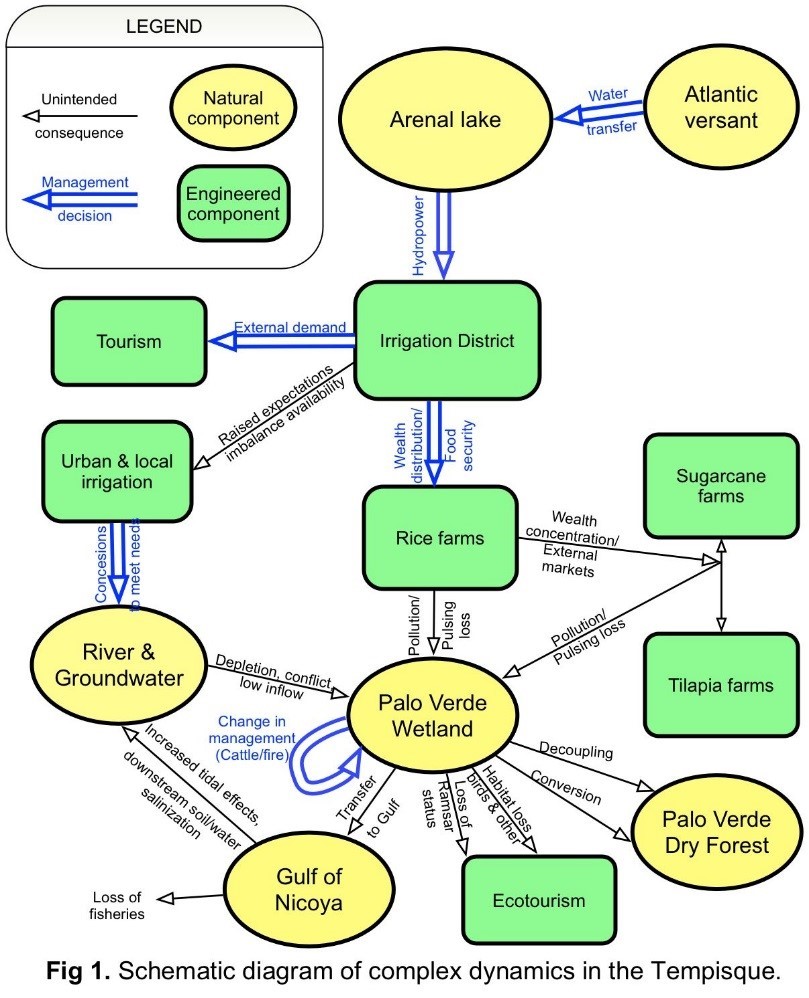Project Title: INDUCING RESILIENCE FOR WATER-SUBSIDIZED SYSTEMS
Six highly motivated doctoral-degree students began working collaboratively in fall 2017 within this interdisciplinary team of student Fellows and their faculty advisors. The focus project takes a comprehensive systems approach to analysis of interbasin transfer of surface water into the Tempisque River watershed in Costa Rica. This water transfer has altered hydrology, land use, economic structure, and health of the downstream Palo Verde wetland in the Tempisque watershed (Figure 1).
The studentís dissertation research will collectively contribute to identifying strategies to achieve watershed resilience by addressing hydrology, ecology and climate as well as social, cultural and legal aspects of the system. Examples of individual research questions include:
- What are key factors determining resilience of the watershed?
- How do climate fluctuations affect watershed resilience?
- How should ecological health be included in determining watershed resilience?
- What policies (restrictions and incentives) can be put in place to induce watershed resilience?
- How do political, social, cultural and legal contexts influence the policy framework for inducing watershed resilience?
- How should a watershed be comprehensively assessed to determine its resilience and hidden trade-offs?

Each student is developing a selected disciplinary expertise on the system while becoming well-rounded and knowledgeable in all other disciplinary aspects of the project. While pursuing a PhD in their respective departments, all of the students are located together in the same office in order to encourage interdisciplinary research discussions.
The student Fellows and their faculty advisors meet as a group twice a month. The project includes a summer 2018 visit to the Tempisque watershed in Costa Rica to gain hands-on experience of the issues. Students are taking interdisciplinary courses tailored to the cohort. Course topics include grant proposal writing, a policy and law field course, a doctoral research seminar on how experiments and models are used and challenged in policy making, a research design course in anthropology, and a course in network science that includes theory and methods related to social and ecological networks.
Students will submit at least 1 funding proposal for their doctoral research, and lead at least one multiple-authored manuscript submitted to an interdisciplinary peer-reviewed journal. Students will present their research findings at the biennial Water Institute Symposium.

